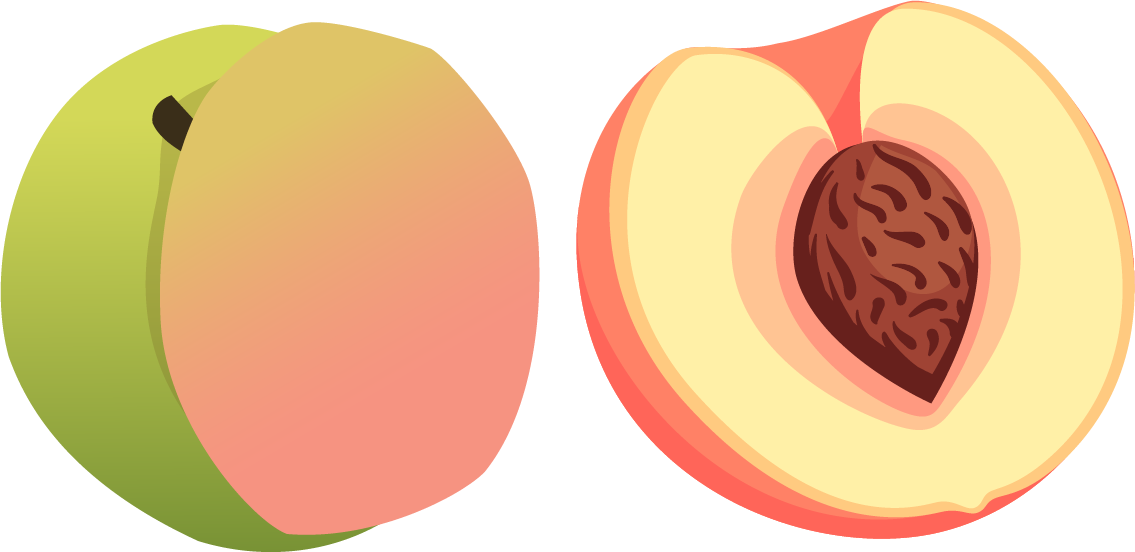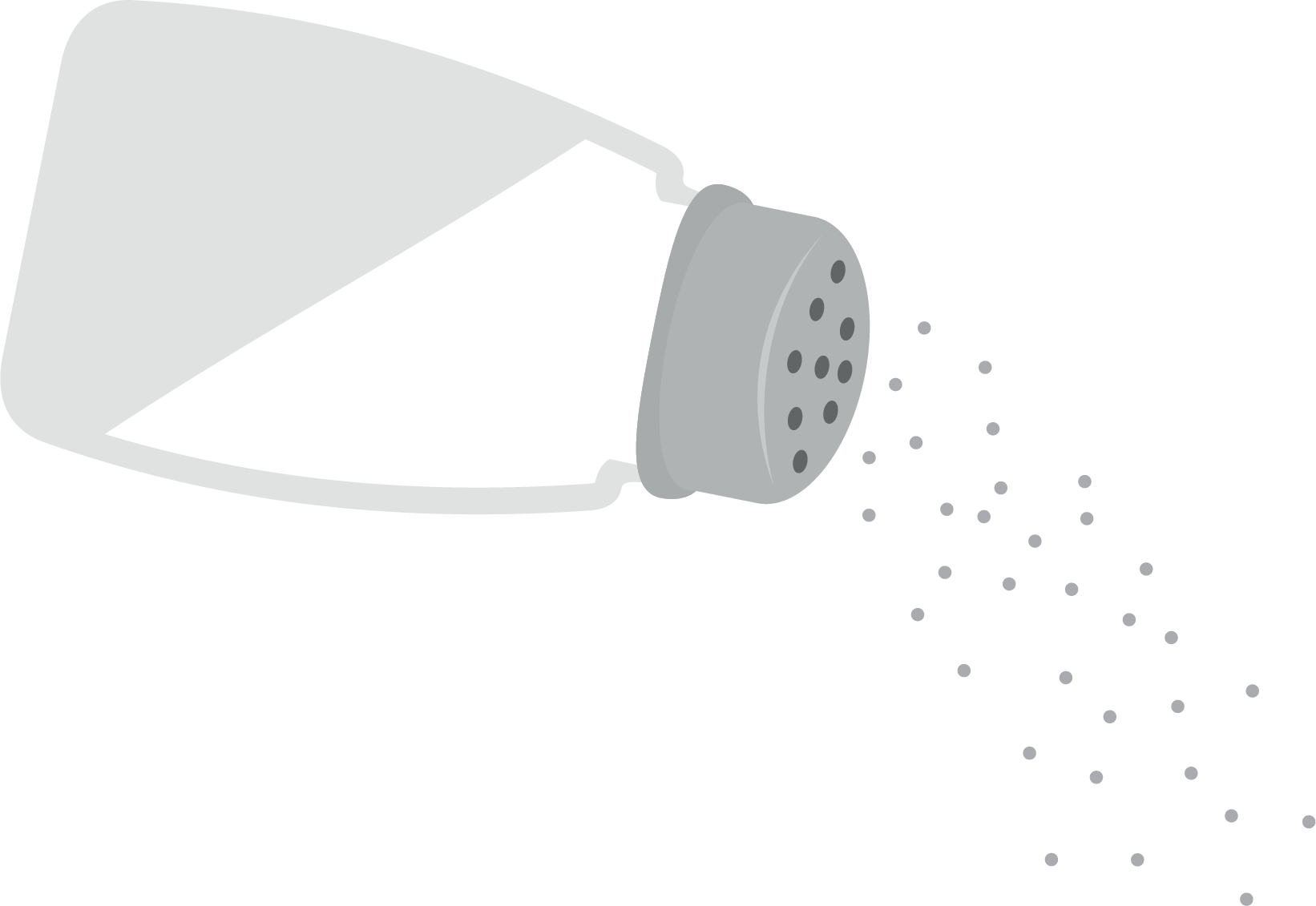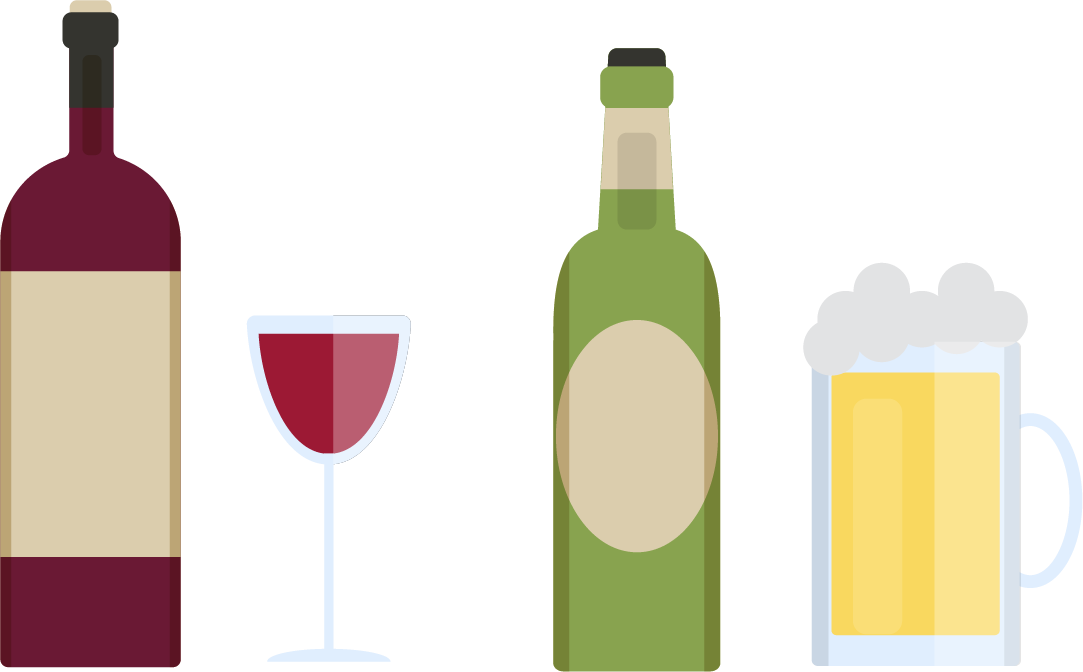The holidays are here, and with them, the year's tastiest eats that tempt even our four-legged family members.
While it's difficult to deny those puppy dog eyes from underneath the dinner table, not sharing your 'people food' is often in the best interest of your pet's health.
We worked with Dr. Julien, Chief Medical Officer for PAZ (a locally trusted Vet Clinic), to answer your big questions like: Can my dog eat potatoes? Are grapes bad for dogs? What is xylitol poisoning? Is Chocolate actually toxic?
IMPORTANT: If your pet has ingested an entire batch of cookies, pecan pie, or chowed down cooked turkey bones - contact your nearest emergency vet. In most cases, your pet will have a serious tummy ache but poultry bones and some nuts can become dangerous.
Looking for our Cat version? Click here!

Holiday Foods: Toxic or Non Toxic?
Let’s start with the no-no foods. These foods and ingredients range from mild to highly poisonous to dogs, depending on the amounts ingested. We do not recommend these items for your dog or cat.
If you notice symptoms of lower or higher body temperature, difficulty breathing, incoordination, diarrhea, vomiting, lethargy, or trembling in your dog - these could be signs of severe food toxicity and could be life threatening. Please contact your veterinarian immediately - PAZ has four locations in Austin.
15 Toxic Human Foods for Your Dog

Peaches
Toxicity level: High
The inner kernel of peach pits contain cyanide - yes, cyanide. If you have cleanly pitted, skinned, and cooked down your peaches, you won’t need to call the vet if they stole a few nibbles. But be advised that ingesting and chewing even one to two peach pits could be dangerous for your dog. Not only because of the toxicity, but these could require emergency surgery if ingested and lodged in the GI tract.

Grapes and Raisins
Toxicity level: High
According to Dr. Julien, Chief Medical Officer at PAZ, the toxin in grapes is believed to be potassium bitartrate (same thing as cream of tartar) and is found in grapes (concentrated in raisins) at varying levels depending on multiple factors. Grape toxicity can lead to severe kidney failure! Avoid grapes for both dogs and cats as a dangerous dosage varies based on size and breed. Symptoms include vomiting, stomach pain, and in severe cases, kidney failure.

Pomegranate
Toxicity level: Mild
The pomegranate is not toxic and is found in many pet foods. However, whenever not properly prepared and handled, this fruit has been known to make dogs sick. Just a few seeds could start a vomiting spell! While your pup is in no real danger, keeping this exotic fruit away is a good rule of thumb for paw-rents. Your carpets, and dog, will thank you later.

Cranberry
Toxicity level: Mild
Like the pomegranate, this holiday fruit isn’t exactly toxic and in general aren't a terrible treat. Feeding in moderation is generally okay. Dr. Julien says the biggest issues arise when well-intentioned pet owners aim to treat or prevent urinary tract infections with cranberries. Overfeeding cranberries to your dog could cause a stomach upset and lead to diarrhea or vomiting. To avoid this and keep your pet safe, we are labeling this tart fruit as a no-no food.

Citrus: Limes, Oranges, Grapefruit
Toxicity level: Medium
The high oil content in the peels of many citrus fruits will cause irritation in your pet's digestive tract and skin. While this might be a mild reaction, the seeds of some citrus fruits may contain very small traces of cyanide - a dangerous toxin. However, it's more common for a small fruits to be lodged in their GI tract. Steer clear of grapefruits and limes and beware of symptoms including drooling, sensitivity to light, trembling, diarrhea, vomiting, lethargy, and depression.

Onions & Garlic
Toxicity level: High
While your pet will most likely experience gastrointestinal irritation, your pet's red blood cells may also be damaged after ingesting onions, chives, or fresh garlic - ultimately leading to anemia. Cats are most at risk, but dogs can also suffer if ingesting in large quantities of onions or fresh garlic. Weakness, vomiting, and trouble breathing are typical symptoms. Typically, the effects on red blood cells occur several days after exposure according to Chief Medical Officer, Dr. Julien.

Avocado
Toxicity level: Medium
Though healthy for people, avocados contain a toxin called persin that can be moderately poisonous to dogs and lethal to other small pets (like birds). Also, the high fat content can potentially lead to diarrhea or even pancreatitis in prone pets. Symptoms can include vomiting or diarrhea, but the biggest danger is obstruction of the intestinal tract should your pet swallow a whole avocado seed.

Candy
Toxicity level: High
Chewing gum and other artificially flavored candies often contain a sweetener known as xylitol, or "Birch Sugar", which is extremely dangerous to pets. If ingested even in small amounts, xylitol can cause seizures, liver failure, and even death. Symptoms appear rapidly within 15-30 minutes of ingestion and include vomiting, lethargy, incoordination, tremors, seizures, and coma. If you suspect your dog has consumed xylitol, seek emergency vet care immediately.

Macadamia and Pecan Nuts
Toxicity level: Medium
Macadamia and many other types of nuts are high in phosphorous and may cause bladder stones or urinary problems. Macadamia nuts also contain an unknown toxin that has been shown to cause neurological problems. Pecan nuts contain juglone, a compound that can cause digestive issues. A 20 pound dog could be affected by as little as 10 nuts. As a general rule, avoid giving your pet any type of nut.

Potatoes
Toxicity level: Medium
Everyone loves potatoes. But, raw potato skins could contain solanine, a toxic compound that can cause GI upset and pain. If a pup were to eat enough green potato peels, it could lead to coma and death. Even though toxicity is a rare occurrence, pets who are prone to stones might be susceptible to its toxins. Just make sure when skinning raw taters to not let Fido grab the scraps off the ground.

Cinnamon/Nutmeg
Toxicity level: Mild
Cinnamon isn't toxic to dogs but high quantities will sure result in an upset stomach. However, nutmeg contains a substance called myristicin and is thought to cause hallucinations in dogs. Large dosages of nutmeg could even be fatal to dogs. Foods like pie, sweet potato casserole, and baked squash might have a higher concentration of cinnamon and nutmeg. It is advised to keep holiday spiced foods and baked goods out of paws reach.

Cocoa
Toxicity level: High
Chocolate contains two toxins -- theobromine and theophylline -- that are stimulants which can cause vomiting, seizures, and heart trouble in dogs if ingested in large amounts. The darker the chocolate, the more dangerous it is: it takes only 3oz of unsweetened baking chocolate for a 20lb dog to exhibit signs of poisoning, whereas 6-9oz of milk chocolate will make a dog ill. Symptoms may take a few hours to manifest and could include incoordination, difficulty breathing, increased heart rate, and fever.

Bread Dough
Toxicity level: High
Rising bread dough that contains yeast is very dangerous for pets for two reasons: 1. The mass of dough in the stomach continues to rise and expand, causing distended abdomen. 2. The warm environment of the stomach (like an oven) promotes ongoing fermentation of the yeast in the dough, which can result in ethanol toxicosis (aka alcohol poisoning). This includes those tasty dinner rolls! Symptoms take 30 minutes to 2 hours to appear and begin with distended abdomen and gassiness (from the rising dough ball), followed by signs of alcohol poisoning like vomiting, loss of coordination, incontinence, and central nervous system depression.

Salt
Toxicity level: Medium
Extreme thirst and dehydration are signs of mild salt consumption. However, sodium ion poisoning is possible if your pet ingests large amounts of salt. They may be at risk if you notice symptoms like vomiting, depression, diarrhea, tremors, or seizures. Common holiday foods with lots of salt: turkey skin, gravy, mashed potatoes, casseroles, and stuffing. The gravy you made is NOT the same as what your pets gets out of a can.

Alcohol
Toxicity level: High
Just like humans, pets can suffer from alcohol poisoning if their blood alcohol level is too high. But because pets are smaller, it takes far less alcohol to induce poisoning than it would for humans. Never give your pets alcohol on purpose. While there may not be cause to panic should they get a few laps of spilt beer, consumption of hard liquor or more than a small amount of beer or wine can lead to poisoning and you should seek vet help.
20 Non-Toxic Foods for Your Dog

We can't let you go home without a list of foods that are safe your your pets!
These below items are safe for Fido and all of his furry friends. No need for worry if your dog grabs a few bites of these ingredients off the kitchen counter!
Make sure whatever they consume is not over seasoned with a salty brine or Holiday spice mix or coated in heavy fat, as these could upset your pet’s stomach. A good rule of thumb is to always serve in moderation - especially to cats.
- Turkey (skin off)
- Kale
- Collards
- Spinach
- Chard
- Turnips
- Radishes
- Beets (cooked)
- Broccoli
- Pumpkin
- Butternut Squash
- Acorn Squash (cooked)
- Spaghetti Squash (cooked)
- Carrots (cooked)
- Cabbage
- Cauliflower
- Brussel Sprouts (shaven)
- Apples (no seeds)
- Pears (no seeds)
- Watermelon (no seeds)
Sources
Thank you to Dr. Julien, Chief Medical Officer for Paz Veterinary Clinic in Austin, Texas, for providing toxic holiday food information for pets.
Looking for more Pet Parenting tips?
Tomlinson's is your go-to pet supply store for natural, healthy pet products in Austin and the Central Texas region. Come shop in-store and we will help you create the perfect diet specifically for your dog or cat!
Visit our shop full of products sold through team members trained in animal nutrition.





